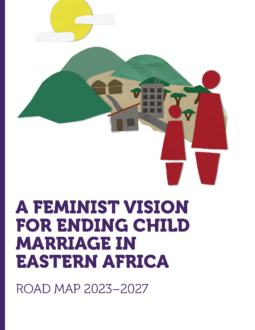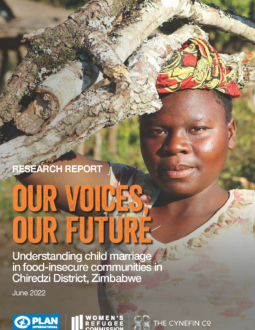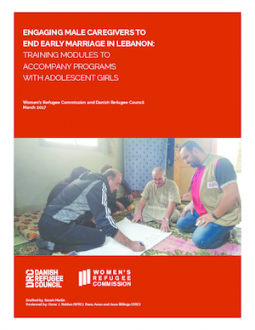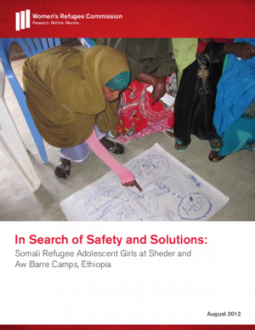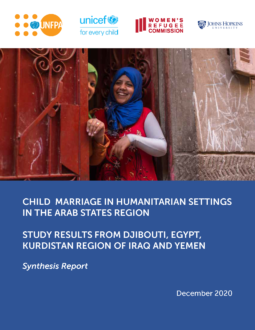
Child Marriage in Humanitarian Settings in the Arab States Region
PublishedStudy Results from Djibouti, Egypt, Kurdistan Region of Iraq, and Yemen
Child marriage is a prominent concern across global contexts, especially in humanitarian settings. Globally, about one in five women were married as children. Girls who marry young face many adverse effects that negatively impact their health and well-being.
The Arab States region has shown quickly declining rates of child marriage compared to other regions of the world. However, current regional rates region show about one in six girls are married before the age of 18. There is now increased concern that the fragility resulting from the multiple conflicts in the region may also significantly impact rates of child marriage.
The United Nations Population Fund (UNFPA) commissioned the Women’s Refugee Commission and John Hopkins University Center for Humanitarian Health in 2018 to expand research on child marriage in humanitarian settings in the Arab States region. United Nations Children’s Fund (UNICEF), with UNFPA, is part of the Global Programme to End Child Marriage and provided technical support to the implementation of this study. Four conflict affected contexts were selected that required a rigorous assessment of prevalence and drivers of child marriage to inform strategic priorities within country offices. Field studies were conducted amongst Somali and Yemeni refugees in Djibouti, Syrian refugees in Egypt, Syrian refugees and internally displaced persons (IDPs) in the Kurdistan Region of Iraq (KRI), and internally displaced persons in Yemen.


